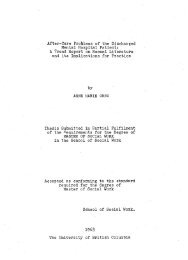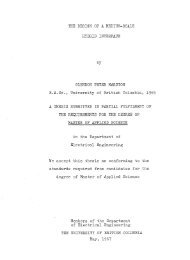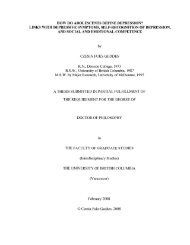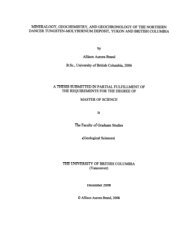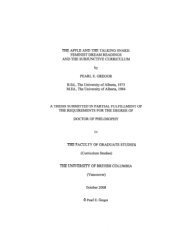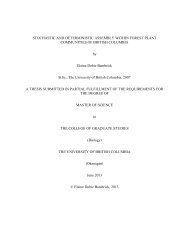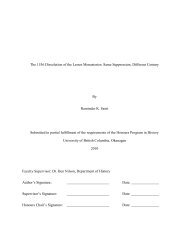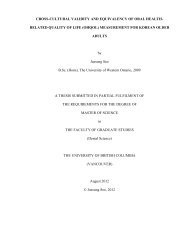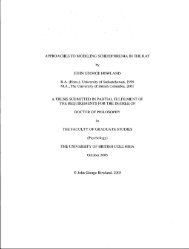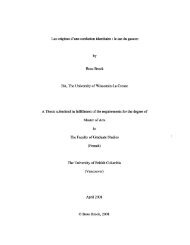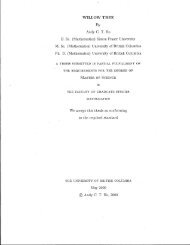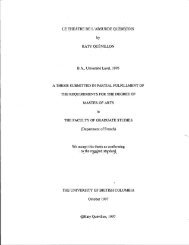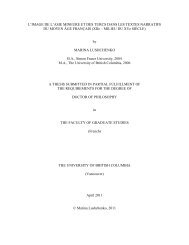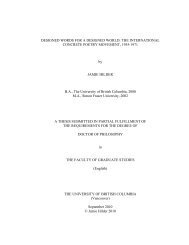A STUDY OF THE THEORY OF APPRAISAL FOR SELECTION By ...
A STUDY OF THE THEORY OF APPRAISAL FOR SELECTION By ...
A STUDY OF THE THEORY OF APPRAISAL FOR SELECTION By ...
You also want an ePaper? Increase the reach of your titles
YUMPU automatically turns print PDFs into web optimized ePapers that Google loves.
standpoint, and is not simply presenting 'empirical' criteria for<br />
the sake of expedience.<br />
Hans Booms stands apart from his contemporaries with his<br />
rigorous exploration of the intellectual weaknesses of the<br />
principles of pertinence and provenance when used as appraisal<br />
methodologies. In 1971, at the German Archives Conference,<br />
Booms advocated the principle of contemporary value as a<br />
definitive and objective standard of appraisal. His argument<br />
shifts the focus of Zimmerman's analysis from the significance<br />
records have to the appraising society, to their significance to<br />
the creating society. Noting that a state of absolute<br />
objectivity is an impossible goal, Booms' methodology is an<br />
attempt to "help archivists to distance themselves from their<br />
subjectivity to the greatest possible extent."40 He intended his<br />
model to provide "a concrete orienting principle for ascribing<br />
value through an appraisal process of positive value<br />
selection."41<br />
The principle of contemporary value identifies value from<br />
the perspective of the creating society. Because the concept of<br />
value is not imposed on the records, Booms' principle has the<br />
ability to provide an objective point of reference that can<br />
resolve the tautological dilemma of appraising value in content<br />
analysis. Booms argues that "only the society from which the<br />
material originated and for whose sake it is to be preserved can<br />
40 Booms, "Society," 106.<br />
41 Ibid.<br />
49



